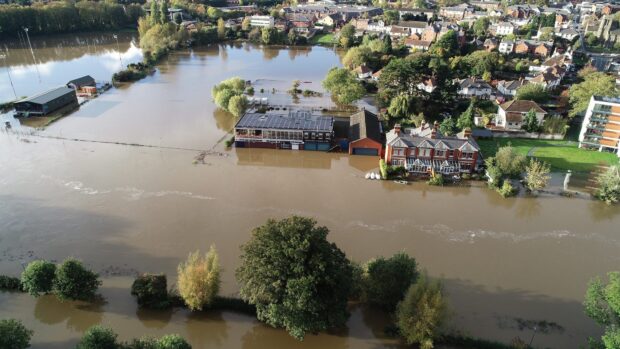
The journal ‘Nature’ has recently published the details of a Europe-wide study regarding the impacts of climate change on flooding. The study found that climate change is causing more frequent and intense flooding in northern parts of the continent, whereas flood risk has reduced in more southern parts of Europe. The story was covered by the I newspaper, Independent, The Ecologist and the Yorkshire Post.
The study is one of the largest of its kind, looking at river level and flooding data from thousands of locations across Europe over a 50 year period. The findings add to the growing body of evidence that shows that the extent and frequency of flooding has increased in the UK over the last five decades due to climate change, particularly in parts of northern and western Britain.
The authors of the study claim that the total annual bill from flood damage – which they estimate to already stand at $100 billion worldwide – is likely to increase and that in order to tackle this increasing risk we must adapt to the realities of our changing climate over the coming decades.
In May this year, Environment Agency Chair, Emma Howard Boyd, launched a long-term Flood and Coastal Risk Management Strategy for England. The Strategy, which has recently been out for public consultation, sets out a long term plan for tackling, preparing for and adapting to the additional risks that climate change will bring.
The Strategy’s recommendations include ensuring that all infrastructure is resilient to flooding and coastal change by 2050, committing £1 billion to flood and coastal defences and natural flood management per year, and building climate resilience into every new home and property development.
Sir James Bevan, Chief Executive of the Environment Agency said:
"Climate change means the threat of flooding and rate of coastal change will increase significantly. To prepare for this risk, as a nation we need to move from a strategy of protection and building higher flood defences to improving the resilience of our communities and our infrastructure, strengthening our ability to cope with flooding and coastal change when it does happen.
“Our new flood strategy sets out a long-term approach to tackling the effects of the climate emergency, as well as the actions we can take in the short term. This includes a record £2.6 billion investment we are making now to protect 300,000 homes from flooding and coastal erosion.”
1 comment
Comment by Adrian Layen posted on
As a member of society who is concerned about the every day impact modern living is having on the environment,the use of plastics, burning fossil fuel, the throw away life style, the must have it now. We are all targetted to reduce waste and our carbon emissions, imposed with taxes to fund councils and local authoritues to reduce the carbon foot print and one day become carbon neutral. So why do car manufacturers need to produce cars of enormous size with 4 litre V8 engines running on massive 20 inch wheels with enough electronics and gadgets to amuse the driver and their passengers for hours? A car that does 0 to 60 in under 5 seconds, a top speed over 155mph and sounds like a herd of rhino charging, when the maximum national speed limit is 70MPH and with rising traffic congestion one can only ever dream of reaching the cars maximum speed. I wonder just how big the carbon foot print is of these modern day cars is with all the resource that goes into building them. Do we need to carry on building these cars with the environmental pressures we all face.